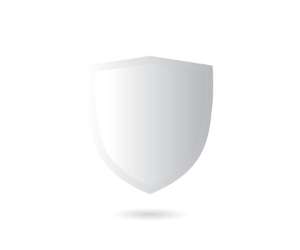
The security industry is a very critical business that helps to protect people and property. It is a professional field and requires two separate registrations/licenses.
Security technicians work on low voltage systems under 30 volts and use many specialized installation tools. The demand for security/low voltage technicians is ever increasing.
Basics
This course is designed to give participants a practical knowledge of the operation and installation of CCTV systems at a foundation level. It consists of well-balanced theory sessions supplemented with interactive practical training to connect newly-learned skills with real-world job requirements.
The training includes a review of basic installer hand tools, installer workplace safety guidelines and personal protective equipment. It also examines the types of cable used in video surveillance, as well as best practices for attaching cabling connector ends.
The practical part of the training involves wireing an alarm control panel to a variety of detection devices, including magnetic reed contacts, pressure mats, personal attack buttons and inertia shock sensors. It also covers the use of strobe lights, sirens and remote keypads and the programming techniques to set up various zone types. The course also introduces the engineer event log and the use of a digital multimeter. This is a highly practical and relevant course for anyone interested in becoming a professional security installer or salesperson.
Installation
An alarm system can help to deter crime, as it gives people a sense of safety in their homes. This type of security is becoming increasingly popular, and there are a wide range of options available to choose from. Some systems even have the ability to send images directly to the police, making them a powerful tool in the fight against crime.
To install a CCTV system, you must gather your gear, choose a location, and safely run your cables. It’s important to hide the wires as much as possible, and you may need to hire a carpenter or handyman to do so. It’s also a good idea to check your local laws to ensure that you are working in compliance with any licensing requirements.
The success of a CCTV system is dependent on a clean and adequate power source. This is especially true for high-end systems that require more sophisticated video processing and recording equipment.
Maintenance
In addition to cleaning lenses and testing cameras, there are other tasks that need to be performed regularly to prevent unexpected equipment failures. This includes testing the recording device, inspecting cables and ensuring software is up to date.
These processes are often complex and require expertise and time to execute, but they can be made much easier with a clear maintenance process. The key is to train all of your staff on how to perform these procedures and keep the documentation up-to-date.
It’s also important to set up scheduled planned maintenance, which can be done by a specialist. This can help you avoid the costs of unplanned repairs and downtime and ensure that your building is protected and compliant with any regulations. The benefits of planned maintenance are significant, especially if your company is required to perform regular tests on security equipment such as fire alarms and CCTV systems. It may also reduce insurance premiums.
Troubleshooting
Students will be taught to diagnose problems and troubleshoot the various elements of a CCTV system. These include alarm control panels, strobe lights and sirens, magnetic reed contacts, inertia shock sensors, pressure mats, self actuating bell units and infra-red detectors. Students will also learn to use digital multimeters, ohm’s law and cable length meters.
CCTV is an industry where proper performance is crucial for protecting people and property. It is a mission critical service that requires professionals with the right skills to maintain and repair systems as needed.
This course will equip you to analyse customer needs and design a residential or light-commercial Closed Circuit Television system using commercially available components. It will also prepare you to install the cabling and equipment required for CCTV installation. This course is delivered over five days in a combination of classroom theory and practical hands-on experience. It is an excellent choice for those looking to start a career in the electronic security industry.
